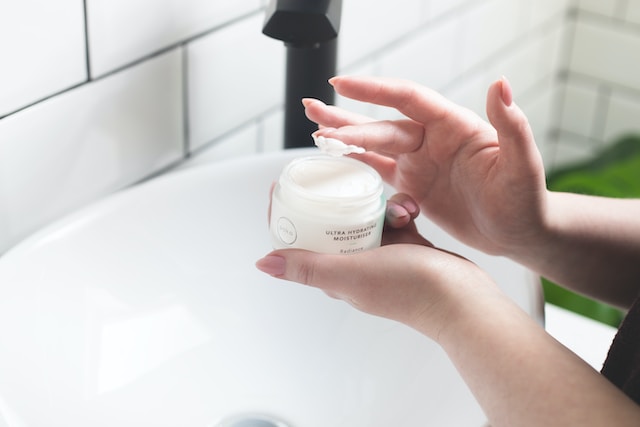
Picture: Unsplash
A well-thought-out skincare routine is necessary for the many people who desire a radiant, healthy complexion. It’s important to customize your skincare routine to your unique skin type and issues because there is no such thing as a one-size-fits-all approach to skincare. In this thorough guide, we’ll delve into the crucial actions and supplies that can help you create the ideal skincare regimen, with a focus on skincare for sensitive skin.
- Cleansing: The Foundation of Any Routine
The first step in any skincare regimen is cleansing, which prepares your skin for the other products to operate properly. It’s important to use a gentle cleanser whether or not you have sensitive skin. A cleanser without abrasive chemicals, perfumes, or sulfates is what you should seek out.
A cleanser with calming components like chamomile or aloe vera is best for sensitive skin. These chemicals can efficiently remove pollutants from your skin’s surface, reducing redness and inflammation. You can use products of skincare for sensitive skin from a reliable source. For a fresh start, gently massage the cleanser onto your skin before rinsing with warm water.
- Exfoliation: Revealing Fresh, Glowing Skin
Dead skin cells must be removed to promote cell turnover, clear clogged pores, and remove dead skin cells. However, it’s vital to proceed cautiously in this stage for people with sensitive skin. Exfoliation that is too severe or excessive might make skin more sensitive.
A light exfoliation with components like glycolic acid or lactic acid is preferable to physical exfoliants since they are less irritating. To prevent over-exfoliation, which can cause redness and irritation, use it once or twice a week. Exfoliation over time can help expose skin that is smoother and brighter.
- Toning: Balancing Your Skin’s pH
Toning is frequently an ignored phase in skincare regimens, but it’s crucial for keeping the pH balance of your skin. Choose an alcohol- and fragrance-free toner if you have sensitive skin. Look for components like rosewater or witch hazel, which can moisturize and soothe your skin while reestablishing its natural balance.
Additionally, toner after cleansing might help your skin absorb the succeeding items in your routine more readily, ensuring that they function more efficiently.
- Serums: Targeting Specific Concerns
Serums are strong compositions made to target particular skin issues like fine lines, dark spots, or dehydration. Select gentle, irritant-free serums for skin that is sensitive.
For example, vitamin C serums help brighten and balance out skin tone without irritating it. Serums containing hyaluronic acid are great for moisturizing delicate skin without blocking pores. Before introducing more products to your routine, introduce one serum at a time to give your skin time to adjust.
- Moisturizing: Locking in Hydration
Moisturizing is important for all kinds of skin, even sensitive skin. A quality moisturizer aids in sealing in moisture and building a barrier of defense against outside aggressors. Choose a hypoallergenic, fragrance-free moisturizer.
Ceramides, which can reinforce your skin’s natural barrier, and niacinamide, which helps lessen redness and irritation, are two substances to look for. After using serums, use a moisturizer to extend their effects.
- Nighttime Routine: Repair and Rejuvenate
Your skin regenerates and repairs itself in large part throughout your nightly routine. Use a mild, moisturizing cleanser to eliminate the day’s dirt. Apply a nutritious night cream or a moisturizer made specifically for use at night afterward.
A product with retinol, a potent chemical that can help improve skin texture and lessen the appearance of fine wrinkles, would be worth using. To prevent sensitivity, start with a lesser concentration and gradually increase usage.
- Extras: Treating Special Concerns
There can be occasions when your sensitive skin needs additional care beyond your normal skincare regimen. For instance, spot treatment with salicylic acid can help eliminate blemishes without aggravating an existing breakout.
A soothing face mask with components like aloe vera or chamomile might offer immediate relief if you experience redness or discomfort. Never forget to test new products on a small area of skin first to be sure they won’t make you more sensitive.
Conclusion
Choosing the ideal skincare regimen requires considering your skin type and problems while choosing the appropriate products and methods. Prioritizing soft, fragrance-free, and hypoallergenic products is essential for sensitive skin to avoid irritability and inflammation. Pay attention to the fundamental stages of washing, exfoliating, toning, applying serums, moisturizing, and sun protection. Also, don’t overlook the value of a nighttime regimen for repair and renewal. You can maintain the balance and harmony of your sensitive skin while achieving the beautiful and healthy complexion you desire with commitment and patience.


